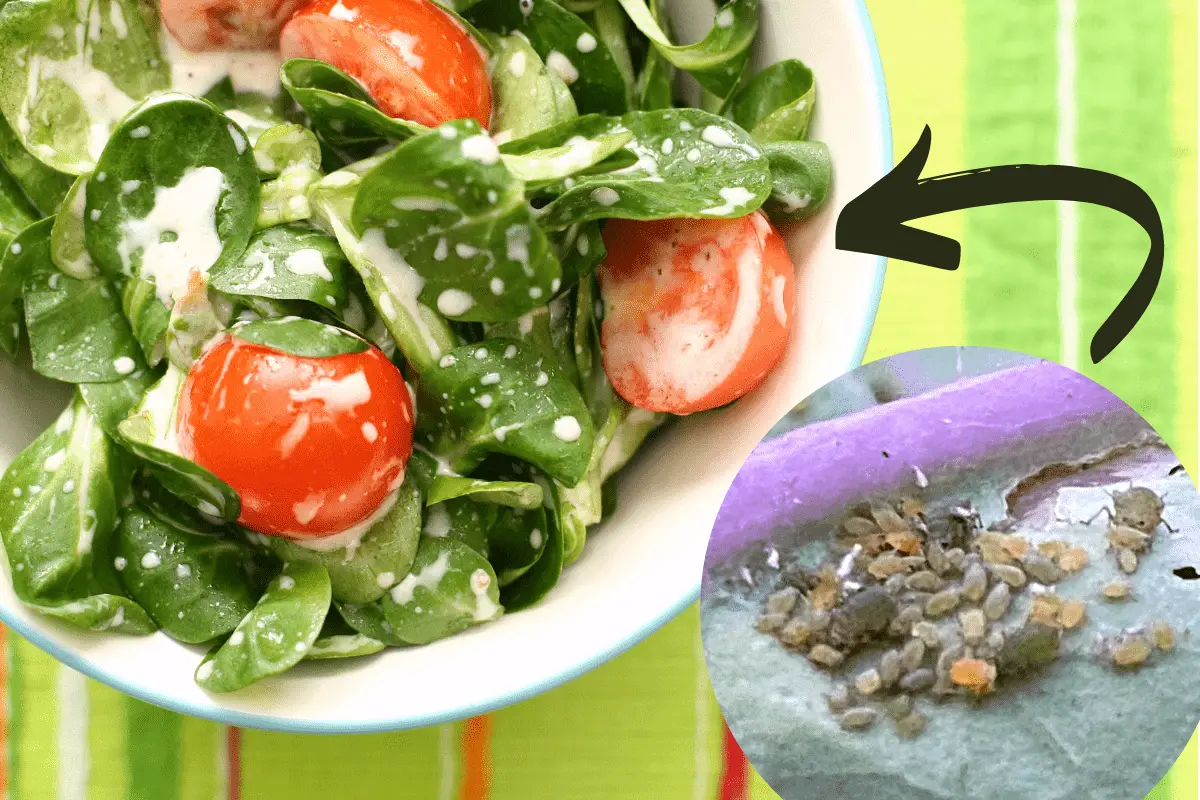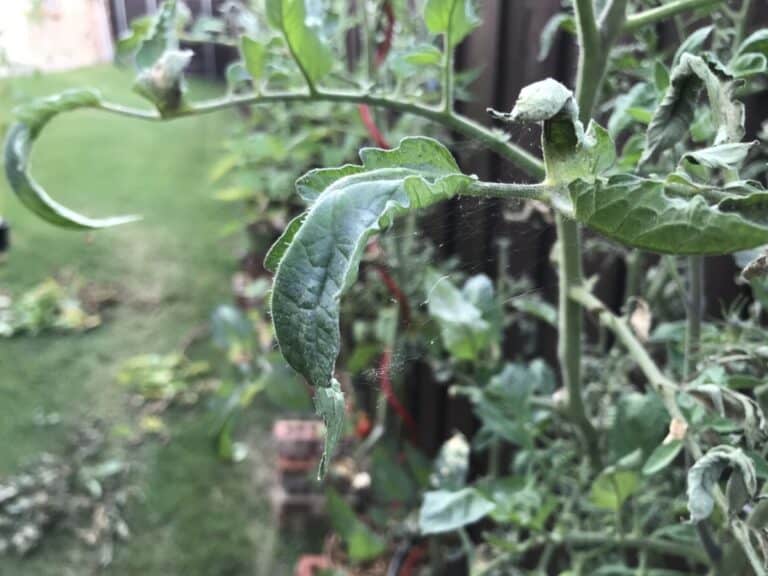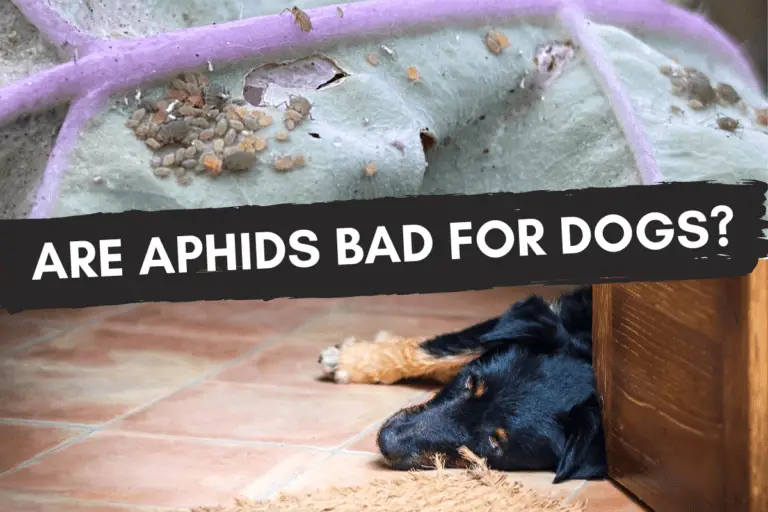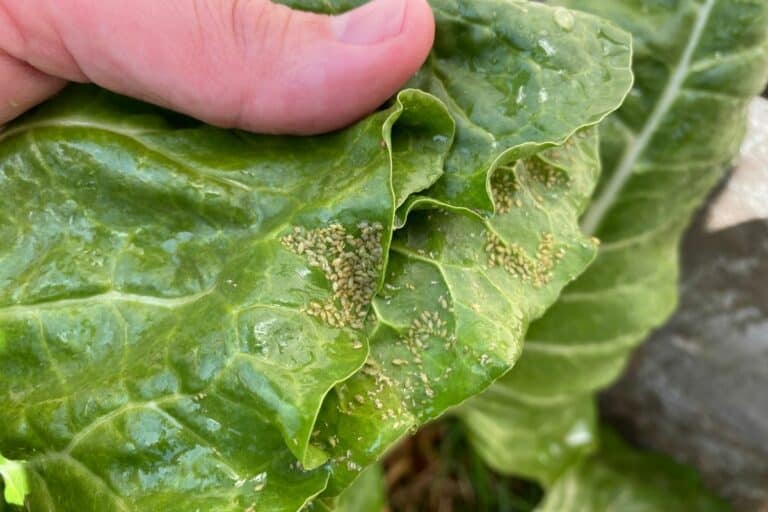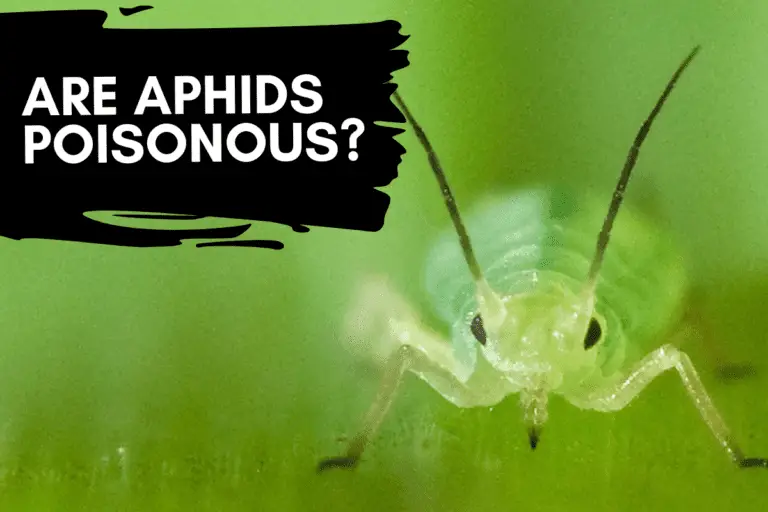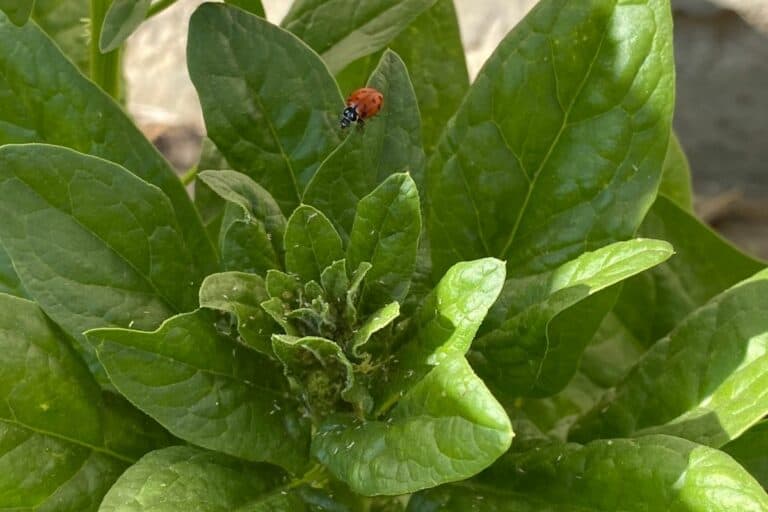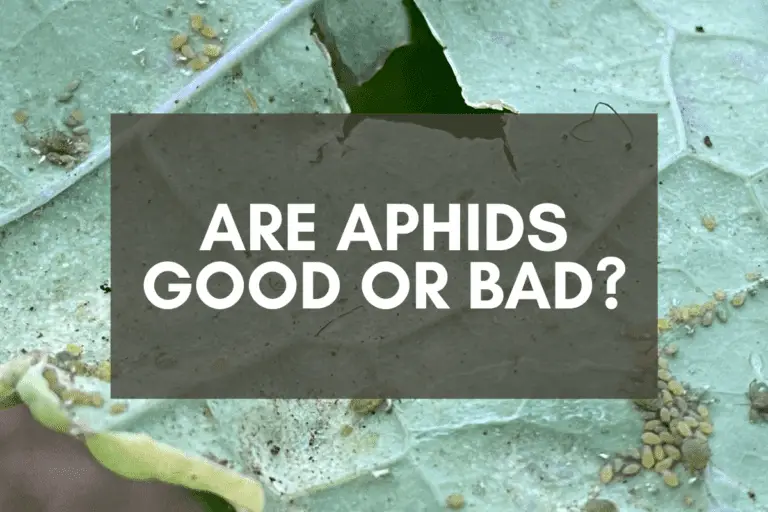Are Aphids Safe to Eat? Handling Aphid-Infested Vegetables
Recently, I decided to make a salad using kale grown in my garden. After harvesting the leaves, I filled a bowl with water, soaked the leaves to wash off any dirt or grime, and put them on the cutting board so that I could chop them up.
Right before I started shopping, I noticed something on one of the leaves: a cluster of greenish aphids that had blended right in and hadn’t been dislodged when the leaf was soaked.
For a half second, I was a bit grossed out. But then I got to thinking: Would I have been okay if I accidentally ate them?
Aphids are not harmful if swallowed and are thus perfectly safe to eat. They can often be found hiding among organic leafy greens—such as collards, kale, lettuce, mustard, and spinach—so those plants should be washed thoroughly prior to serving.
Thankfully, aphids are soft-bodied insects, so your body’s natural digestive processes will break them down just like food gets broken down.
Of course, I can’t imagine anyone would want to purposefully eat aphids—and as far as I can tell, aphids have no nutritional value given their small size—so let’s take a look at a few common questions, then discuss some suggestions I have for ensuring that your homegrown vegetables get washed properly prior to meal prep.
What Happens If You Accidentally Eat Aphids?
Here’s some good news about aphids: They can’t harm humans or pets. They can’t bite or sting you. And they won’t irritate your skin.
In fact, with the exception of one incredibly rare species native to Taiwan (more on that below), aphids won’t harm you in any way if you accidentally swallow some of them. The same goes if you’ve eaten quite a few of them before realizing your food was infested.
No matter how many aphids you unknowingly eat, they won’t harm you.
In fact, if you’ve been gardening for any length of time, you’ve probably already eaten aphids at one point or another. I’m sure I must have at some point or another. I’m just glad I did it unwittingly.
Can Eating Aphids Make You Sick?
This question often comes up because it’s widely known that aphids are vectors for disease transmission. If they can spread diseases to literally hundreds of plant species, can they make you sick too?
Eating aphids will never result in illness. They cannot make someone sick, either through ingestion or skin contact. The diseases transmitted by aphids are purely plant diseases and thus will not cause any illness or harm to someone who swallows or touches aphids.
As I noted above, aphids have very soft bodies. Their exoskeletons can’t withstand much pressure whatsoever, and they’ll be digested along with the rest of your food if you happen to eat some during a meal.
Gross? Kind of. Harmful? Not at all.
How to Wash Aphids Off Kale and Lettuce: 5 Tips
Even though I know that nothing whatsoever will happen to me if I accidentally swallow aphids during one of my meals, I’d really rather avoid that.
Given my recent experience with nearly eating a bowl of aphid-infested kale, here are some tips for making sure that leafy greens such as kale, lettuce, and others are aphid-free.
1. Inspect While Harvesting
I’ve dealt with aphids for many years, but it still amazes me how well they manage to hide. When you’re harvesting leafy greens for a meal, take a quick look at the plant and it’s leaves. Do you notice any dark spots or white flex? Do you see any yellowing of the foliage? Do you know the sense?
These are all telltale signs of an aphid infestation, so if you notice any of these, flip over the leaves of your plant and take a close look at the undersides. You might be surprised to find aphids hiding under there.
2. Rinse on High
In general, streams of water can often wash aphids off plants. But I’ve personally seen quite a few aphids hang tight despite a steady stream from my tap.
With that in mind, when it’s time to wash your leafy greens, turn the water on high so that you’ll have a better likelihood of washing off any pests that might be hiding among the leaves.
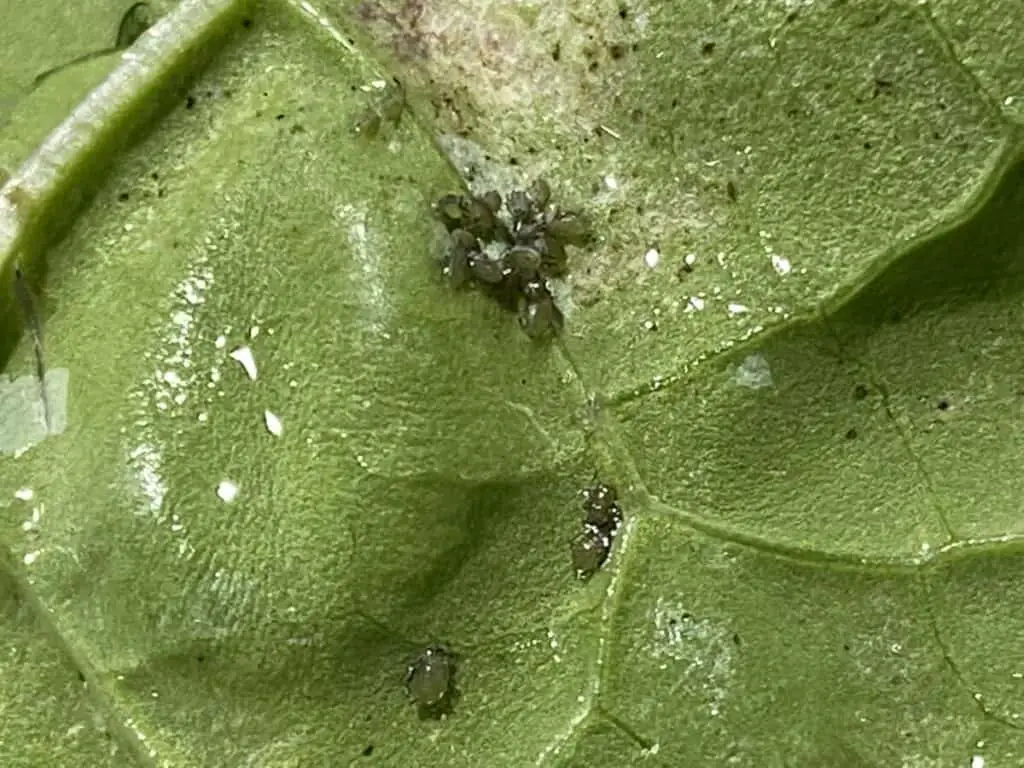
3. Wipe Carefully
If you’ve just harvested leaves from a plant that you know is infested with aphids, you might want to take one optional extra step because you might have large clusters of aphids on the underside of the leaves.
After you’ve rinsed everything, take a clean sponge and gently wipe it along the leaf. If any aphids managed to hang on during the rinsing process, this will undoubtedly pry them off.
4. Give an Ice Bath
With lettuce in particular, I’ve noticed that it’s sometimes fairly limp after I’ve harvested it, especially when I leave it out for a bit prior to cooking.
If you want your leafy greens to firm up, simply fill a big bowl with water and add plenty of ice. Soak the leaves in the bowl for 20-30 minutes, and you’ll notice that they’ll firm up nicely.
Aphids can survive in cold weather, but they’re not going to survive a 20- to 30-minute ice water bath.
5. Pat Dry
After I put my leafy greens through an ice bath, I always pat them dry. If any bug somehow managed to survive up to this point, they certainly won’t survive a firm pat with a clean towel.
Simply put, if you follow these 5 steps, there’s no way that you’re going to have any bugs on your leafy greens. And with the exception of the time it takes for the leafy greens to sit in your ice bath, it doesn’t even take very long.
Can Aphids Harm Humans?
I’ve focused above on what happens if you accidentally eat aphids, but when it comes to more general matters of harm, I want to make sure I’m crystal clear: Aphids cannot harm humans. And in case you were wondering, they can’t harm pets either.
There is a single species of aphid that lives in a certain kind of tree near the Sun Moon Lake in central Taiwan that can supposedly irritate human skin if you’re unlucky enough to disturb them, but I want to note two things:
First, the evidence is incredibly thin on this point. I haven’t seen much in the way of scientific studies about this phenomenon, and I don’t necessarily want to put too much stake in anecdotal accounts. Second, I’ve seen some gardening blogs take this one example and make larger claims about aphids causing skin irritations, but this just isn’t the case. We’re talking about a single species in a single place on earth.
How to Get Rid of Aphids
If you’d like to learn more about getting rid of aphids, I’ve written extensively on this subject. You can read my quick overview of how to spot aphids and how to use water, soapy water, and neem oil to get rid of them.
On that note, one of my favorite organic pest control products is neem oil, so if you’d like to learn more about what neem oil is and how to use it, I’ve written an article detailing just about everything you need to know when it comes to using neem oil to stop soft-bodied garden pests such as spider mites, aphids, white flies, and others.
Further Reading
I’ve been writing about aphids for quite some time since they’re such a nuisance for so many gardeners. They’re not as destructive as spider mites, but they’re incredibly prolific, and they have a way of showing up unnoticed.
If you’d like to read more about aphids, check out my articles below. I’ve tried to write on as many varied topics as possible so as to fill my articles with everything I know about aphids.
- Are Aphids Poisonous?
- Can Plants Recover from Aphids? Tips to Save Your Plants
- Can You See Aphids on Plants? Spotting Early Infestations?
- Should I Throw Away a Plant with Aphids? Things to Consider
- Where Do Aphids Come From? Things to Consider
- Will Aphids Die in Winter? 5 Things You Need to Know
Credit to Katrin Gilger for the photo adapted for this article’s featured image.
